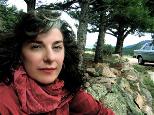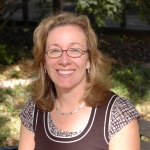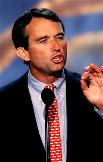 Until recently, Anita M. Burke, worked for Shell International as the
advisor to the Shell International Committee of Managing Directors on the
operationalisation of sustainable development and the energy portfolio
implications of a carbon constrained future. During her 18 years of working in
all aspects of the upstream and downstream portions of the oil business, she
has delivered profitable technologies and organizational processes that have delivered
on the sustainable development and climate change strategic vision. Anita
is internationally recognized as a thought leader in the area of sustainable
development. She has helped to co-create visionary strategies for the future
and practical, tactical actions to deliver on our need to go beyond organic and
disentangle us from the hydrocarbon energy system. She is practical and
passionate about local living economies and the processes that will contribute
to the evolution of our relationship with the planet and each other.
Until recently, Anita M. Burke, worked for Shell International as the
advisor to the Shell International Committee of Managing Directors on the
operationalisation of sustainable development and the energy portfolio
implications of a carbon constrained future. During her 18 years of working in
all aspects of the upstream and downstream portions of the oil business, she
has delivered profitable technologies and organizational processes that have delivered
on the sustainable development and climate change strategic vision. Anita
is internationally recognized as a thought leader in the area of sustainable
development. She has helped to co-create visionary strategies for the future
and practical, tactical actions to deliver on our need to go beyond organic and
disentangle us from the hydrocarbon energy system. She is practical and
passionate about local living economies and the processes that will contribute
to the evolution of our relationship with the planet and each other.
Her deep belief in the mystery, commitment to seeking the Divine and the sometimes messy manifestation of the awakening soul, is the magic that underpins her work. She weaves the poet, healer, seeker and deep connection to the earth into the business pragmatics to resonate in a way that tantalizes the heart into right action.
She is currently writing,
speaking internationally and advising governments and green businesses on
social responsibility, operationalizing sustainable development and practical
actions for delivering on socioeconomic change. She is also a partner in
several innovative green businesses in both North America and China.
 Judy Dorsey is the founding President and principal engineer at The Brendle Group. She also serves as Executive Director of the Northern Colorado Clean Energy Cluster. Her career journey has
involved developing a unique expertise in mechanical engineering centered on demonstrating
the business case benefits of sustainability. For the last 11 years, she has led The Brendle
Group on its quest for sustainable development and climate protection, including energy, water,
solid waste, and air emissions.
Judy Dorsey is the founding President and principal engineer at The Brendle Group. She also serves as Executive Director of the Northern Colorado Clean Energy Cluster. Her career journey has
involved developing a unique expertise in mechanical engineering centered on demonstrating
the business case benefits of sustainability. For the last 11 years, she has led The Brendle
Group on its quest for sustainable development and climate protection, including energy, water,
solid waste, and air emissions.
As an example of Judy's expertise and determination, she rallied a decade of business relationships in 2006 to help form the Northern Colorado Clean Energy Cluster, a mass-collaboration that is growing the regional economy around clean energy technologies. One Cluster initiative, FortZED, provides the platform to transform a 45-Megawatt area covering downtown Fort Collins and the campus of Colorado State University (CSU) into a zero energy district. A thought leader behind FortZED, Judy serves as the Cluster's Executive Director, with Brendle Group employees providing professional staffing.
Judy also serves on the boards of directors for the Rocky Mountain Sustainable Living Association, the High Plains Environmental Center, the CSU Institute for the Built Environment, and the CSU College of Engineering Dean's Advisory Board.
In 2004, Judy received the '40 Under 40' award, which recognizes the top 40 entrepreneurs in Northern Colorado under age 40. In 2006, she received the distinguished alumna award from the CSU Department of Mechanical Engineering, and was nominated by Mayor Hutchinson to the Colorado Climate Action Panel.
Judy holds an MS in Mechanical Engineering from CSU and a BS in Mechanical Engineering from Northwestern University. She is a registered professional engineer in the State of Colorado, a Certified Energy Manager, and LEED Accredited Professional.
Judy resides with her family in Fort Collins in Colorado's first LEED-certified home.
 Robert
F. Kennedy, Jr.'s reputation
as a resolute defender of the environment stems from a litany of
successful legal actions. Mr. Kennedy was named one of Time magazine's “Heroes for
the Planet” for his success helping Riverkeeper lead the
fight to restore the Hudson River. The group's achievement helped
spawn more than 130 Waterkeeper organizations across the globe.
Robert
F. Kennedy, Jr.'s reputation
as a resolute defender of the environment stems from a litany of
successful legal actions. Mr. Kennedy was named one of Time magazine's “Heroes for
the Planet” for his success helping Riverkeeper lead the
fight to restore the Hudson River. The group's achievement helped
spawn more than 130 Waterkeeper organizations across the globe.
Mr. Kennedy serves as Chief Prosecuting Attorney for the Hudson Riverkeeper and President of Waterkeeper Alliance. He is also a Clinical Professor and Supervising Attorney at Pace University School of Law’s Environmental Litigation Clinic and is co-host of Ring of Fire on Air America Radio. Earlier in his career he served as Assistant District Attorney in New York City. He has worked on several political campaigns including the presidential campaigns of Edward M. Kennedy in 1980, Al Gore in 2000 and John Kerry in 2004.
He has worked on environmental issues across the Americas and has assisted several indigenous tribes in Latin America and Canada in successfully negotiating treaties protecting traditional homelands. He is credited with leading the fight to protect New York City's water supply. The New York City watershed agreement, which he negotiated on behalf of environmentalists and New York City watershed consumers, is regarded as an international model in stakeholder consensus negotiations and sustainable development. He helped lead the fight to turn back the anti-environmental legislation during the 104th Congress.
Among Mr. Kennedy's published books are the New York Times’ bestseller Crimes Against Nature (2004), St. Francis of Assisi: A Life of Joy (2005), The Riverkeepers (1997), and Judge Frank M. Johnson, Jr: A Biography (1977). His articles have appeared in The New York Times, The Washington Post, Los Angeles Times, The Wall Street Journal, Newsweek, Rolling Stone, Atlantic Monthly, Esquire, The Nation, Outside Magazine, The Village Voice, and many other publications. His award winning articles have been included in anthologies of America’s Best Crime Writing, Best Political Writing and Best Science Writing.
Mr. Kennedy is a graduate of Harvard University. He studied at the London School of Economics and received his law degree from the University of Virginia Law School. Following graduation he attended Pace University School of Law, where he was awarded a Masters Degree in Environmental Law.
He is a licensed master falconer, and as often as possible
he pursues a life-long enthusiasm for white-water paddling. He
has organized and led several expeditions in Canada and Latin
America, including first descents on three little known rivers
in Peru, Colombia, and Venezuela.
 Dr Hermann Scheer MP. Member of the German Parliament, since 1980; Member of the Parliamentary Assembly of the Council of Europe, since 1987; Author, policy innovator and global leader in the field of renewable energy
Dr Hermann Scheer MP. Member of the German Parliament, since 1980; Member of the Parliamentary Assembly of the Council of Europe, since 1987; Author, policy innovator and global leader in the field of renewable energy
Resume highlights
• Born 29th April 1944
• University studies in Heidelberg and Berlin (Economy, Social Science, Public Law)
• PhD at Free University Berlin (1972)
• Dr. h.c. at Technical University Varna, Bulgaria (1997)
• Recipient of the Alternative Nobel Prize in Stockholm, 1999, granted for his worldwide commitment to Renewable Energy
• Recipient of the World Solar Prize by the 2nd World Conference on Photovoltaic Solar Energy Conversion in Vienna, 1998
• Recipient of the World Prize on Bio-Energy by the 1st World Conference on Biomass in Seville, 2000
• Recipient of the Global Leadership Award by the American Council on Renewable Energy (ACROE), 2004
• Recipient of the World Wind Energy Award by the World Wind Energy Conference in Bejing, 2004
• Named Hero for the Green Century by TIME Magazine, 2002
• Since 1988 President of the European Association for Renewable Energies EUROSOLAR
• Since 2001 General Chairman of the World Council for Renewable Energy (WCRE)
• Seminal books on the renewable energy transition: Sonnenstrategie (1993), 8th edition 1999, published also in English under the title “A Solar Manifesto”, Spanish, Italian, Portuguese, Czech, and Hungarian Solare Weltwirtschaft (Solar World Economy), 1999, 5th edition 2002, published also in English, French, Spanish, Portuguese, Chinese, Japanese, Russian, Italian, Danish,Arabian, Czech Energieautonomie (2005)
Biographical statement - narrative
Born in 1944, Herann Scheer graduated from high school in 1964. He attended the Officers School of the German Federal Army from 1964 to 1966, serving as lieutenant during 1966-67. Hermann studied economics, sociology, political science and public law between 1967 and 1972 at the University of Heidelberg and the Free University of Berlin. He received his PhD in Economic and Social Science in 1972. Dr Scheer was appointed Assistant Professor at the Technical University of Stuttgart in the Faculty of Economics, 1972-76. He worked as system analysts at the German Nuclear Research Center from 1976-1980. Dr Scheer was first elected member of the German Parliament in 1980, re-elected in 1983, 1987, 1990, 1994, 1998 and 2002. He served as Chairman of the Arms Control and Disarmament Committee 1990-93. Since 1983 Hermann Scheer has been delegated by the German Parliament to the Parliamentary Assembly of the Council of Europe, and served as Chairman of the Committee on Agriculture between 1994 and 1997. He holds a Doctor honoris causa, bestowed by the Technical University of Varna (Bulgaria). Dr Scheer has chaired as well as initiated numerous international research and development conferences.
Examples include the
• European Photovoltaic Solar Energy Conversion Conference in Glasgow (2000),
• World Wind Energy Conference in Berlin (2002) and Capetown (2003),
• Earth Conference on Biomass for Agriculture and Industry (1995),
• European Conference Solar Energy in Architecture and Urban Planning (1993, 1996,1998, 2000);
• First International Conference on Financing Renewable Energies (1997),
• 1st and the 2nd World Renewable Energy Forum (2002 and 2004), and the
• International Parliamentary Forum on Renewable Energy (2004).
His work has been honoured with the
• inaugural SolarWorld Prize (1998),
• inaugural World Prize on Bioenergy (2000),
• Alternative Nobel Prize (Right Livelihood Award, 1999), and the
• Gold Medal of the Union for Small Hydropower.
• TIME Magazine recognised him in 2002 as one of five “Heroes for the Green Century.”
Dr Scheer’s work is dedicated to a broad shift in the energy basis of modern civilization: from fossil and nuclear resources to renewable energies. He has demonstrated both necessity and feasibility of this transition in his five books: The Stored Sun (1987), The Solar Age (1989), Solar Strategy (1993), Solar World Economy (1999) and Climate Transition (2002). In addition, Dr Scheer has also authored more than one thousand articles. The Solar Strategy (1993) has been published in eight languages; the English version is entitled "A Solar Manifesto". The Solar World Economy (1999) is distributed in eleven languages; the English publication is “Solar Economy”. These two volumes are acknowledged as the most widely read books on renewable energy worldwide, combining
new technological, economical and cultural issued with policy recommendations, from the local to the global scale. They suggest that the transition to renewable forms of energy with the aid of modern technologies will lead to a “solar information society.” This shift creates the most important and promising structural change of civilisation since the beginning of the industrial age and leads to manifold benefits for societies: mitigating climate change, and overcoming national security issues, addressing the mounting water crisis, cleaning the cities, improving the health of the people, revitalizing the agricultural economy, creating new industrial jobs and fighting underdevelopment and deprivation in the developing world. In 1988 Dr Scheer founded the non-profit European Renewable Energy Association EUROSOLAR, and in 2001 the non-profit World Council for Renewable Energy (WCRE), serving as President and General Chairman, respectively, of the two non-governmental organizations on a honorary basis. Through these institutions Dr Scheer elaborated his original policy concepts for renewable energy disseminations, and initiated legal frameworks in Germany and the European Union. He has done so both in his capacity as a Member of Parliament, and by advising governments in Africa, Asia and Latin America.
In these roles Hermann Scheer’s most successful policy innovations have been acccomplished:
• the fully implemented 100.000 photovoltaic solar energy roof programme, the world’s first mass implementation program;
• the German Renewable Energy Act with 16.000 MW installed decentralized renewable energy capacity below 5 MW per installation (including 14.000 MW wind energy capacity, 40% of total world wind power installations); and
• full tax exemption for all biofuels, affording a lower price level for renewable fuels when compared to fossil fuels.
The revolutionary German National Renewable Energy Act (Energieeinspeisegesetz, EEG) provides the major boost for the renewable energy technology industries sector, generating more than 100.000 new jobs and triggering annual renewable energy growth rates of 30 percent. Based on these exemplary results Brazil and China have recently adopted this policy as concept, adapting it to their own requirements.